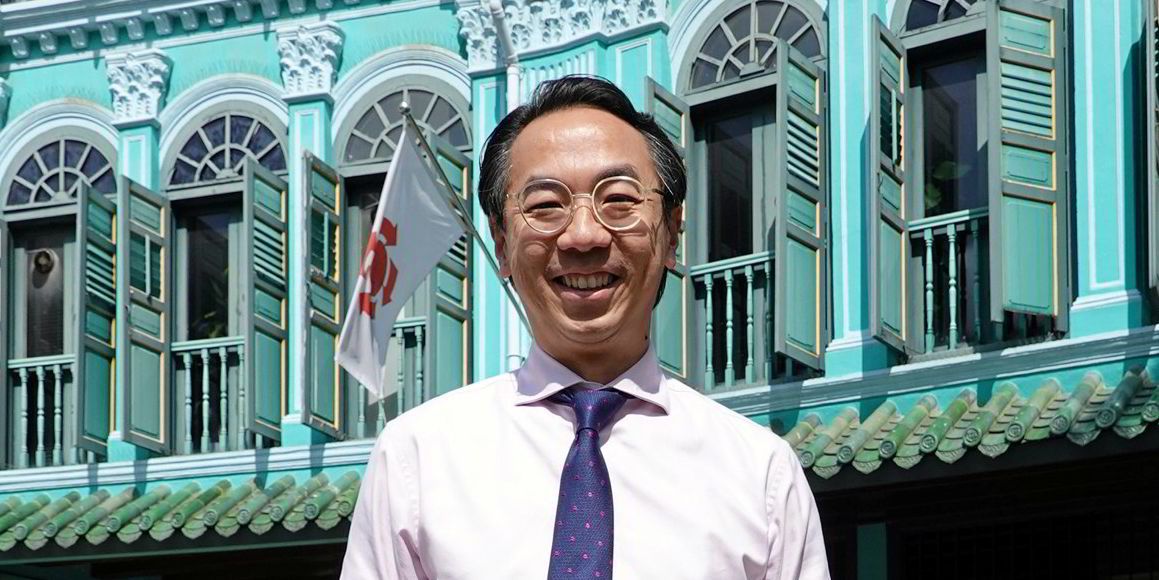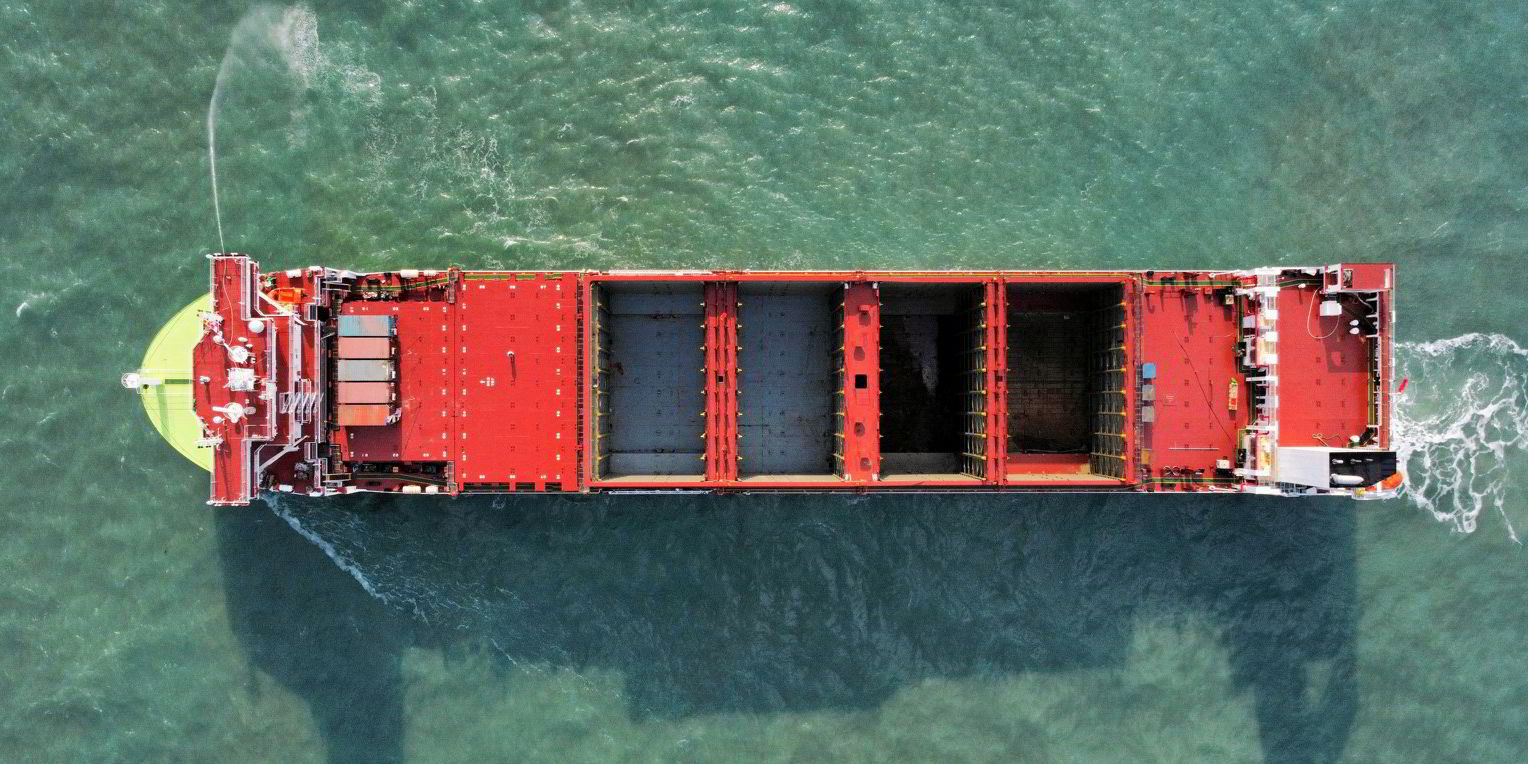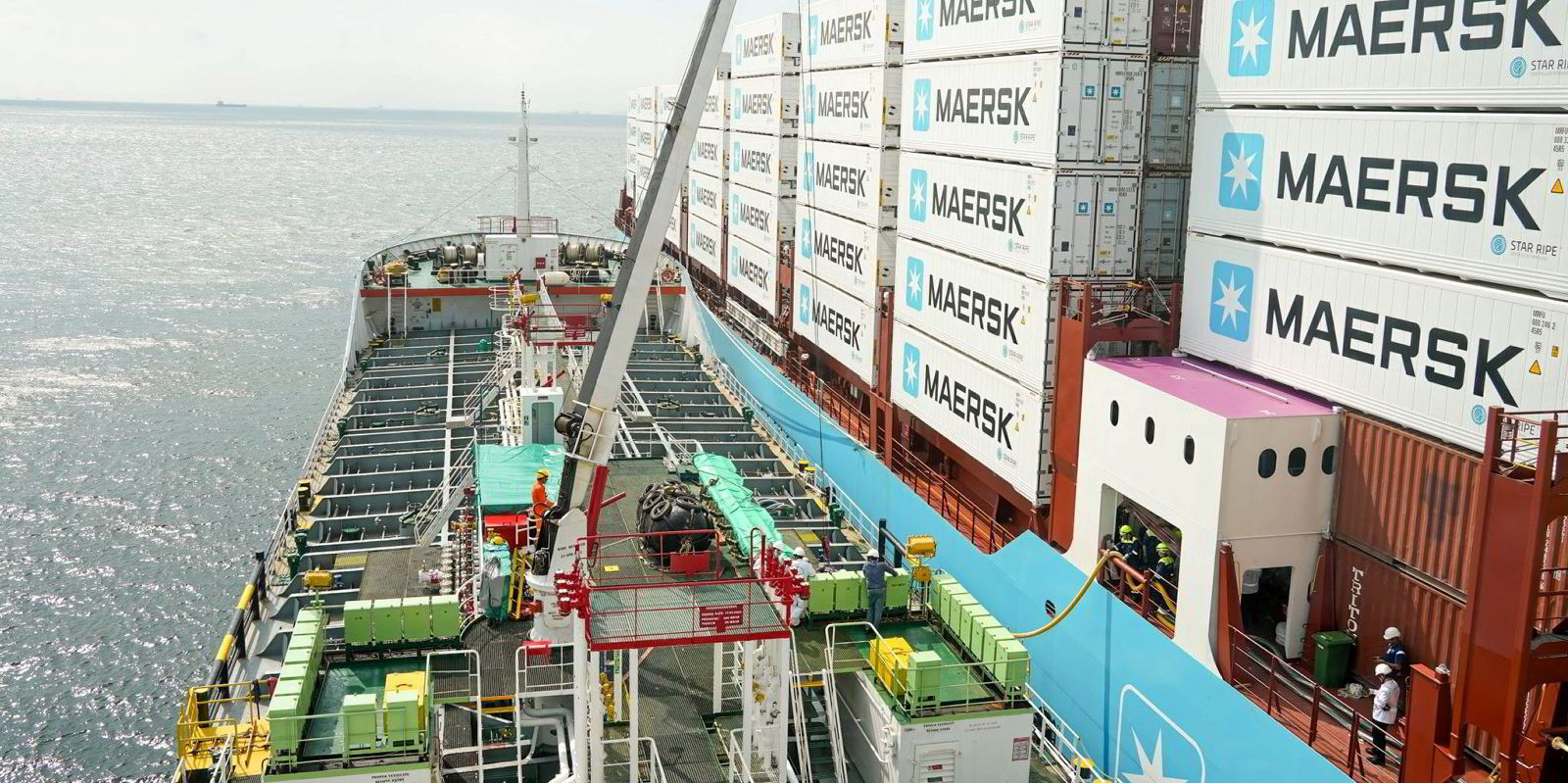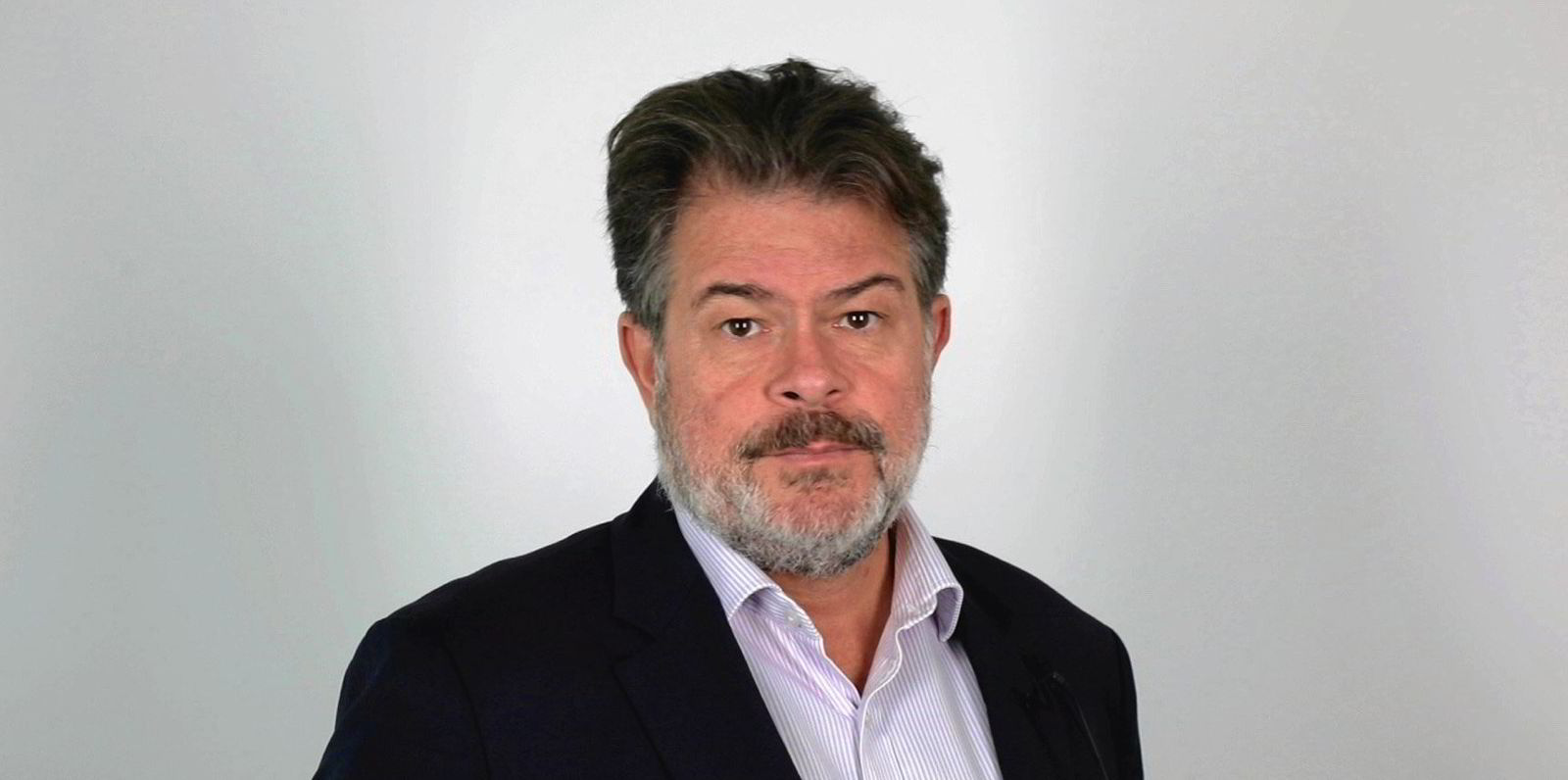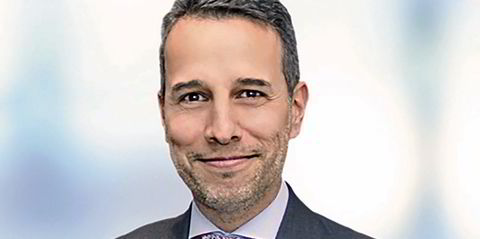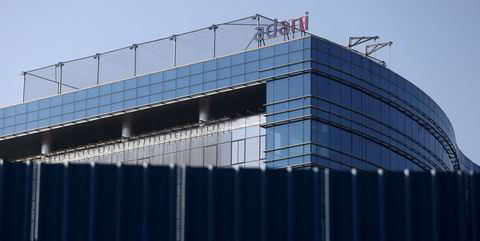X-Press Feeders, a company that proclaims to be the largest common carrier in the liner sector, was an early mover on green methanol as a marine fuel with its order of 14 cutting-edge 1,200-teu dual-fuel container ships in 2021.
With the imminent arrival of the first vessel — the prototype Eco Maestro — the company has revealed plans to launch an eco-friendly corridor for feeder container services from Rotterdam to the Baltic.
Chief operating officer Francis Goh said the Baltic is just the first of what the company hopes will be many such services.
During this exclusive interview at X-Press Feeders’ headquarters in a restored conservation shophouse on a quiet tree-lined street in Singapore, Goh further detailed the company’s initiatives to mitigate emissions from its current fleet of 60 owned vessels.
However, it is the potential of establishing a network of green methanol corridors that gets Goh most excited.
The first four methanol dual-fuel ships have been assigned to the Baltic service and several more might also be deployed in northern Europe.
“A lot of it depends on where and when the green methanol is available. For us, northern Europe, Scandinavia and the Baltic areas are a natural choice for a start because of the availability in places like Rotterdam,” Goh said.
The Mediterranean will be next, once there is more clarity on the availability of green methanol, he added.
“We’ve already got some interest from our mainline operator customers who are asking about the Mediterranean, so when green methanol is available there, we would set our sights on deploying a few ships there. It is not a difficult one for us because we already have a network of ships there. We operate about 20 ships in the Mediterranean and it is still a growing market.”
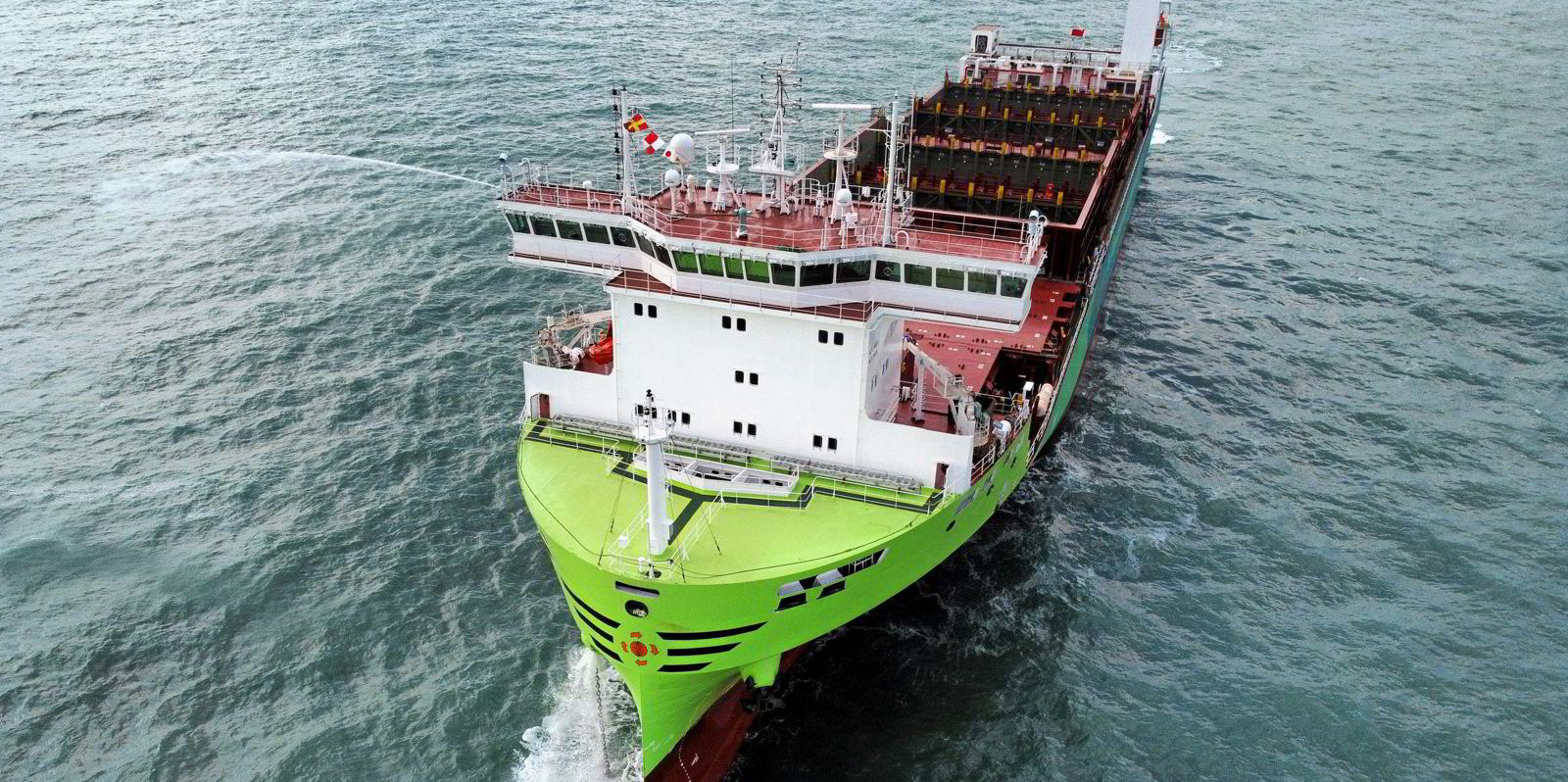
Looking further afield, Goh believes there may be an opportunity to deploy a few of X-Press Feeders’ methanol dual-fuel ships in the Americas, where a lot of bio-methanol is produced.
“I can imagine that even maybe two years from now we can deploy them in Central America, where we have a network of ships running our services.”
However, Asia is not currently on X-Press Feeders’ green methanol focus, at least not for this initial set of 1,200-teu dual-fuel ships.
“We are definitely open to Asia, but there we tend to operate bigger-size ships, whereas these ships that we ordered are smaller than the typical ships that we operate in Asia, where green methanol is still in relatively short supply,” Goh said.
The majority of ships operated by the company on its Asian route networks typically range from 2,700 teu to as large as 7,000 teu.
X-Press Feeders has no immediate plans to order methanol dual-fuel vessels in these size ranges, although Goh said the company is always open to doing so if there is enough demand.
That means convincing customers to get on board with green methanol, and most importantly, to pay the additional cost of running a ship on green methanol, which as a marine fuel is currently three to four times more expensive than conventional fuel.
While Evergreen Marine has already committed to being a customer of the innovative Baltic service, convincing other clients of X-Press Feeders may require more time or additional persuasion.
Goh said mainline operators understand that alternative fuels such as green methanol cost more, and there is a degree of willingness to pay extra for decarbonisation, but they may not be willing to go all in just yet.
“I think every company set up a budget, you know, to say ‘let’s spend a bit, let’s go on this sustainable route and pay what it costs’. And then they wait to see whether their big customers, the shippers, are willing to pay their fair share, and then it’s a bit of back and forth.
“In a way, it’s the same for us. We had to try, we took the first step and invested it in the ships. Then we went out to some of our customers, while some of our customers heard about our investments and approached us. That then gave us the confidence to order another six after our initial order of eight,” he said.
“There are a few who are not ready yet, for whom it is not the right moment, but I think from the feedback we’ve received, everyone recognises that this is part of a very long-term journey. The key is to stay in touch and to just keep abreast of the developments.”
Alternative pathways
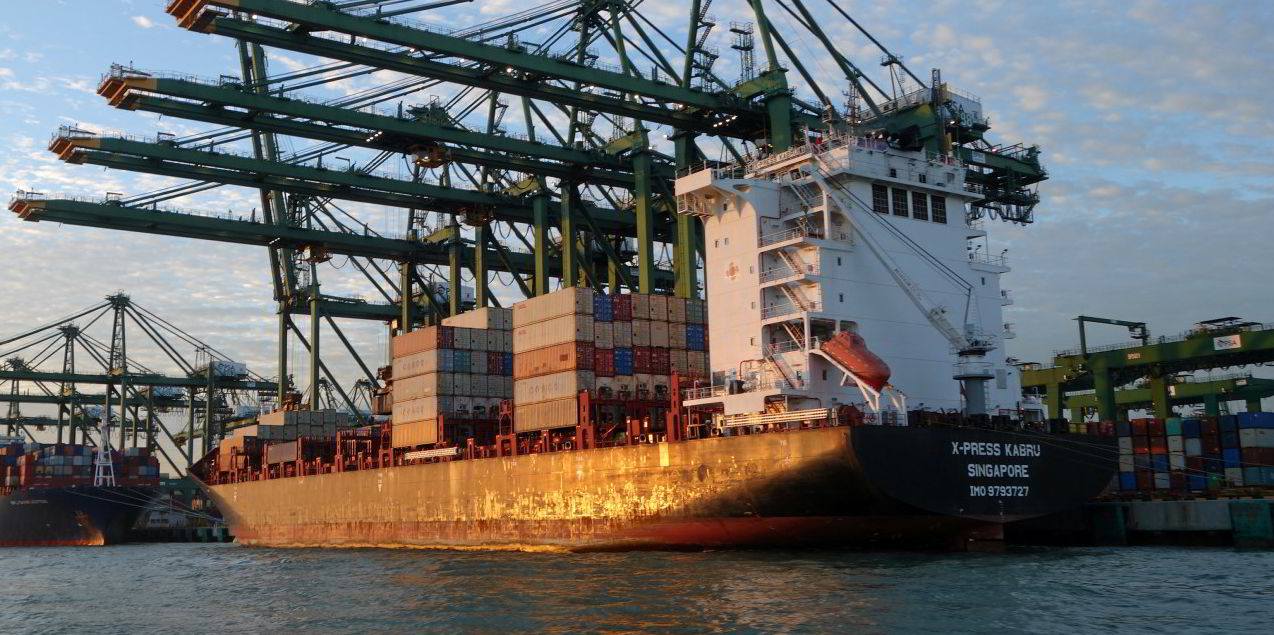
Fleet renewal will play a large part in X-Press Feeders’ decarbonisation journey.
The company does not intend to restrict itself only to green methanol as a way to decarbonise. It is looking at a variety of options to reduce emissions, ranging from a new generation of more efficient conventionally fuelled newbuildings that would reduce consumption by between 30% and 40% as compared to the current fleet, to retrofitting existing vessels using a variety of fuel-saving technologies that are available in the market.
The company opted for green methanol rather than ammonia because the latter as an alternative fuel is still at the conception stage.
“We are not considering ammonia just yet, but when it is ready it will be exciting,” said Goh.
Even nuclear power is on the table. X-Press Feeders is an investor in London-based Core Power’s drive to use nuclear power as a source of ship fuel.
The container ship operator has previously stated it is working to develop a molten salt reactor that could propel ships with zero emissions and produce other green fuels.
X-Press Feeders has been ownership-averse for much of its 52-year existence, but in more recent years has switched strategy and now owns around 60 container ships. A further 19 — ranging from 1,200-teu methanol dual-fuel ships to 7,000-dwt conventionally fuelled vessels — are on order.
At any given time, the company charters in an additional 40 to 50 ships, while some of its own ships are also chartered out.
Goh notes that most chartered ships are smaller, with capacities of less than 2,000 teu.
“There tends to be more availability of smaller ships in the charter market, while larger ships have lower availability,” he said.
As a charterer, X-Press Feeders prefers to fix vessels on short terms to allow the company to stay flexible.
Goh said the company is open to tonnage providers on green vessels using alternative fuels, but in all likelihood will probably just own such vessels outright.
When Captain Chris Hartnoll launched Sea Consortium, a small shipping agency in Singapore, in 1972, it was the start of a family-owned shipping empire that is currently headed by his son, Tim.
X-Press Feeders, the company into which Sea Consortium would eventually grow, is the flagship of the family business that through various trusts and business entities has grown to include investments in the offshore, tanker and marine technology sectors.
Also in the portfolio is Bengal Tiger Line (BTL), a smaller Singapore-based feeder container company that was acquired in 2022.
BTL and X-Press Feeders had been cooperating on routes for several years before the takeover and continue as separate operated and managed businesses.
X-Press Feeders chief operating officer Francis Goh said there are no plans to merge the two companies. However, he emphasised that the collaboration between them is dynamic and ongoing.
